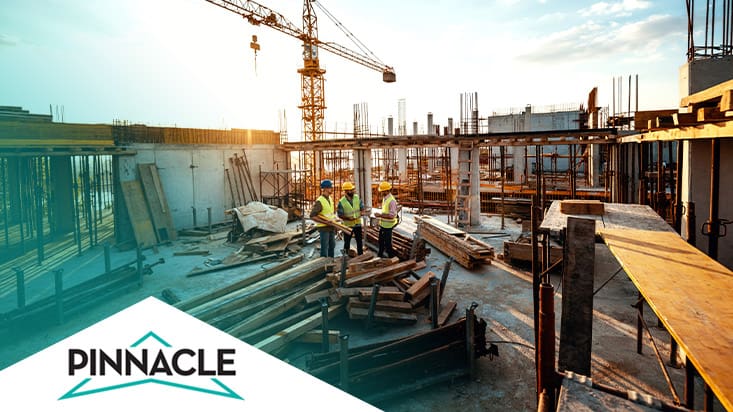Surety bonds are something that are typically used within the construction industry. They’re essentially designed to provide a form of guarantee that’s shared between the parties involved. As an example, when it comes to contract bonds, there’s a principle of ensuring compensation if the work were not to be completed for any reason.
Call: (844) 612-7238
Understanding the types of surety bonds available to use are important not only to protect your company but all those you work with.
So what are Construction Bonds?
Construction bonds are also known as contract bonds. They’re an insurance for those working in the world of construction. These bonds are something you want in place before a project even begins, in order to protect you and your business. There’s a financial guarantee that ensures all costs of a construction budget are covered.
If you’re the company issuing these bond guarantees, you’re guaranteeing the completion of the work done by the contractors or contractors that you use. It protects you as the project owner, particularly when it comes to poor quality work. The other party or parties are held responsible should this happen and so those you work with will be ensuring that everything possible is done to ensure you’re satisfied with the outcome.
A construction performance bond will vary in cost of obtaining one. It all depends on the specific requirements but usually it will be the equivalent of 1% of the project’s value. When a project exceeds £1 million, then it can sometimes go up by half a percent or so. There’s also the contractor’s financial history to consider which may have some influence on what insurance firms and construction bond companies charge.
Payment Bonds & Bid Bonds
 For payment bonds, this is a type of bond that will help cover payments and costs that are involved to carry out the work. Labor and maintenance costs are also covered by this bond, making it a pretty crucial one to add in.
For payment bonds, this is a type of bond that will help cover payments and costs that are involved to carry out the work. Labor and maintenance costs are also covered by this bond, making it a pretty crucial one to add in.
Bid Bonds
Bid bonds are there to protect you, the project owner, in the event that the contractor doesn’t honor the completion of the project. You have the right to sue the issuer in order to enforce the bond, but the hope is that it won’t come to that. A bid bond is required on most projects, and will generally be issued at around 10% of the project value; this is different when it comes to Federal construction projects, where the value is set at 20%.
Quality Assurance with Performance Bonds
Performance bonds are a key clause that you’ll want to put into a contract that states contractors need to obtain a performance bond prior to doing any work.
Construction performance bonds are self-explanatory but it’s basically making sure that the contract discussed will be completed in line with what you’ve asked when it comes to the project. Sometimes, when you end up working with some contractors, they may not provide the same level of quality from start to finish. This can be highly frustrating because you end up spending a lot of money and the time spent fixing these quality issues could delay your project and potentially lose you money in the process.
When construction performance bonds are in place, it means that if you don’t receive the level of work expected then you can sue the bond to sue them. It also enables you to then hand over the work to someone else in order to get it done efficiently.
What about subcontractor performance bonds?
 As well as performance bonds, you may wish to get a subcontractor performance bond put in place. These are project-specific agreements made between the subcontractor and guarantor. So the guarantor will ensure the completion of whatever subcontract you have in place, if the subcontractor is unable to do so.
As well as performance bonds, you may wish to get a subcontractor performance bond put in place. These are project-specific agreements made between the subcontractor and guarantor. So the guarantor will ensure the completion of whatever subcontract you have in place, if the subcontractor is unable to do so.
Whether this is running into financial difficulties or problems with staff. It’s just like when someone rents a property, there may be times where an estate agent will ask for a guarantor to be put in place. It’s a backup should anything fall through and it just adds that extra level of security that might sometimes be needed. It’s particularly important when it comes to big contracts.
With subcontractor payment bonds, these are different to the subcontractor performance ones as they are an agreement that guarantees the labor and materials used. This is important especially as a lot of construction projects would likely need this guarantee when working on certain projects or with particular contractors.
Subdivision Contractors Bonds
With subdivision bonds, these can be needed in cases where contractors are working on building work for local authorities or governments. They’re a guarantee for the authority who is commissioning the work that the contractor will complete as stated. This may be sidewalk maintenance, electrical upgrades, etc.
Pinnacle Surety Provides Construction Performance Bonds
There are many advantages that come with getting these performance bonds. Not only do they provide reassurance that a project will be completed in line with the contract’s terms but it means the business issuing the bond won’t have to pay any additional money. It’s important though that you outline these contracts in detail so that it will fulfill every need required by the company in question.
Both private companies and investors will rely on construction performance bonds as insurance for their projects so if you’re looking to obtain these bonds, it’s important to be familiar with what ones are available. You would then need to look for a trusted surety agency or company to find the best bonds for you.
Even private companies and investors will generally rely on performance bonds to protect their interest in a project. Due to this, contractors must be able to obtain competitive performance bonds if they want to operate in the industry. Here at Pinnacle Surety, we’re available for any type of performance bonds that you may be after.


